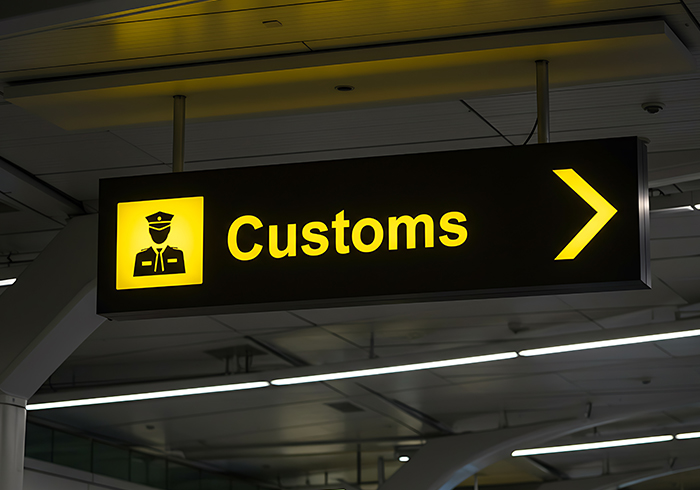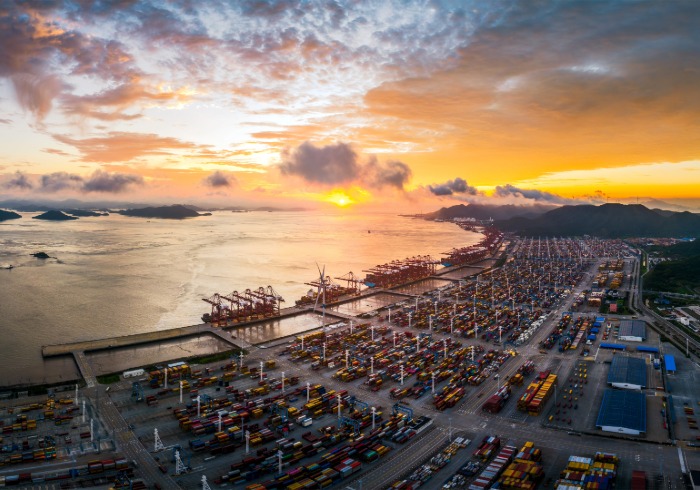The US government is continuing to crack down on customs fraud, targeting illegal transshipment, double invoicing and the misclassification of goods.
Earlier this month, US Customs and Border Protection (CBP) announced it had uncovered more than US$400mn in unpaid trade duties between January 20 and August 8 under the Enforce and Protect Act (EAPA).
This included US$250mn in evaded antidumping and countervailing duties – measures designed to prevent foreign producers from flooding the US with cheaper goods.
Investigations into 23 US importers revealed a network of Chinese shell companies moving goods through Indonesia, South Korea and Vietnam.
“Every importer investigated was found in violation, more companies were exposed, and new evasion tactics uncovered,” CBP says, referring to illegal transshipment, where goods are routed through third countries to disguise their origins.
Susan S. Thomas, acting executive assistant commissioner for CBP’s office of trade, says the scale of evasion is unprecedented, adding that the US$250mn total could increase as the investigation continues.
The enforcement action forms part of the US government’s move to step up measures against companies carrying out trade fraud and evasion at what legal experts claim is a far greater level than seen previously.
It follows a raft of tariff hikes on goods imported from major trading partners, including China, India, Vietnam and Mexico, that have been brought in since President Donald Trump’s inauguration in January.
Announcements from the Department of Justice (DoJ) have made it clear that criminal enforcement of trade fraud and evasion will be a priority, and its corporate whistleblower awards pilot programme now extends to “trade, tariff, and customs fraud”.
Another aspect of increased focus is the use of the False Claims Act (FCA), the US government’s main civil tool for pursuing companies that defraud it, including by misclassifying or undervaluing imported goods or misrepresenting their country of origin.
While the government can file suits itself, private whistleblowers can also bring them on behalf of the government and – if successful – receive 15% to 30% of the damages.
Lawyers GTR spoke to agree that the DoJ is likely to focus on three main areas of customs fraud: misclassifying imported goods under incorrect categories, undervaluing imported products and misrepresenting countries of origin.
Joshua Kurland, partner at Hogan Lovells, tells GTR the law firm has had “a lot” of requests for advice on tariffs in the last few months.
“In this environment it’s going to be extremely important for companies to understand their supply chains, both companies that are importers of record and companies that work mostly with importers of record,” he says.
“It’s not good enough for companies to be able to say, ‘Well, this is what my supplier told me’, if they haven’t exercised appropriate, reasonable care and due diligence, or if they are in receipt of information that would reasonably lead one to question the information coming from a supplier.”
While the DoJ’s use of the FCA is not new, there has been an uptick in the last two years. More than 40 FCA cases have been resolved since 2011, with nearly half of these happening since 2023, according to a briefing note from law firm Gibson Dunn.
These have given the DoJ more experience in using the law for customs fraud, Gibson Dunn says, leading to the likelihood of it intervening in more cases going forward.
As tariff rules continue to change, Kurland urges firms to think about the terms of their supplier relationships. “Companies need to be focused on negotiating who pays the tariffs and who will bear the risk or benefit of changes to the tariff regime.”
“The scenario companies don’t want to get into is having ambiguity that leads to the expense and distraction of disputes,” he adds.
Big incentives
The increased focus on customs fraud also brings with it hefty incentives for individual whistleblowers.
One complaint recently (July 16) filed by the US government alleged that a South Carolina firm, Global Office Furniture, undervalued office chairs imported from China and tried to destroy the evidence.
It alleged the furniture company used a double-invoicing scheme, whereby the supplier creates an invoice with a lower total as well as a second invoice showing the real amount, enabling the importer to pay less in duty.
Undervaluing goods to avoid paying higher duties as tariffs change via a dual invoicing schemes is common in the customs world, explains Andre Fiebig, partner at law firm Quarles.
“What’s interesting about the Global Office Furniture case is that it was the office manager who went to the government and said what the company was doing,” Fiebig says.
Because firms committing customs fraud likely have to rely on their employees to carry it out, this leaves them open to whistleblower actions.
“Once you involve an employee, you better employ them for the rest of their lives, because as soon as you fire them, who are they going to call? They’re going to call a lawyer. They’re going to go to the Department of Justice and get a lot more money from you. And the government knows this,” Fiebig says.
Another double invoicing scheme was alleged in a complaint against clothing company Barco Uniforms – first filed by the firm’s former director of product commercialisation.
In its April filing, the US government alleged that Barco violated the FCA by using a double invoicing scheme to “avoid or decrease the payment of customs duties by undervaluing imported garments” purchased from foreign suppliers.
“What’s happening is people got creative in the customs process, and the US government has gotten wind of that. The Department of Justice is trying to enforce it more, because as tariffs go up, the incentive for companies to be creative is also going up, because you could save a lot of money,” Fiebig says.
Kurland adds that issues like double invoices are “red flags”.
“If companies are seeing their suppliers do these kinds of things, I think it should create concern for them, but also they are the type of things that US authorities will look to when they’re asking whether a company exercised reasonable care,” he says.
Misrepresentation cases are also being targeted. Last week (August 19), a Texas-based supplier of countertop and cabinetry products, Allied Stone, agreed to pay US$12.4mn to resolve allegations that it violated the FCA by evading duties owed on quartz surface products imported from China.
The US government alleged Allied Stone misrepresented the imported products, claiming instead that they were made of other materials – such as marble – that were subject to lower tariffs.
The original whistleblower is set to receive around US$2.2mn of the proceeds.
Earlier this month, GTR reported on a recent decision by the US Court of Appeals for the Ninth Circuit on Island Industries v. Sigma Corporation, which affirmed the US$26mn verdict against Sigma.
Island Industries, a pipe fitting manufacturer, had filed the original complaint under the FCA against its competitor Sigma in 2017, alleging that Sigma had made false statements on customs forms to avoid antidumping duties on goods imported from China.







